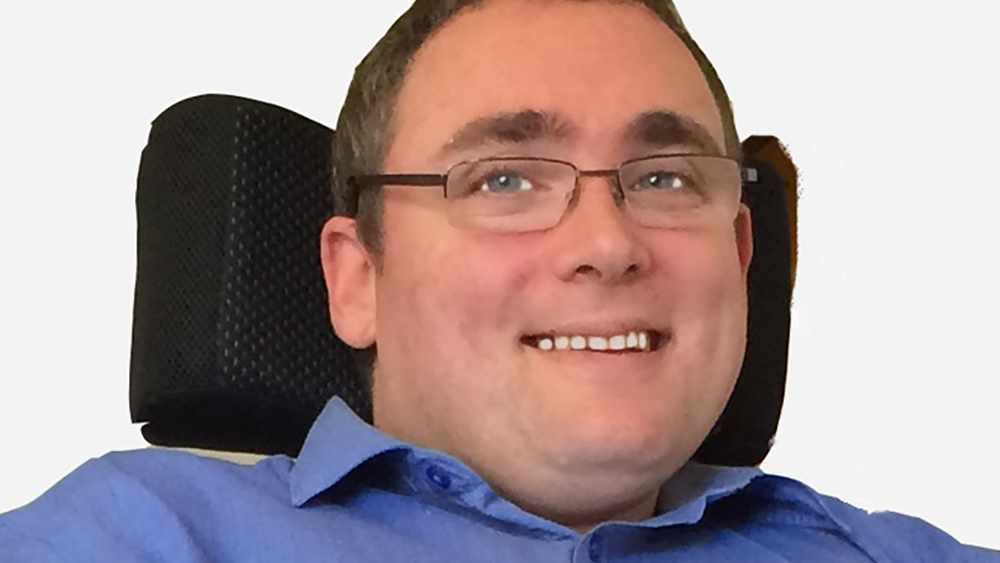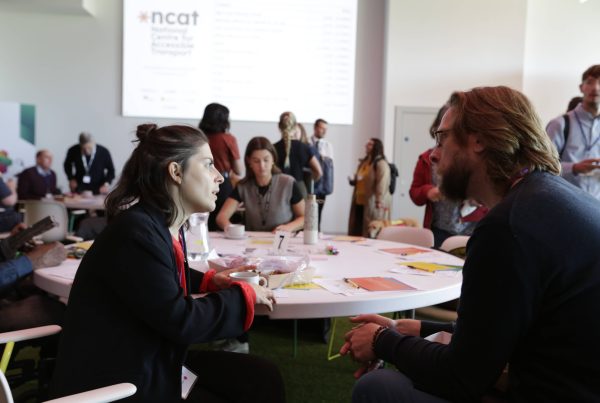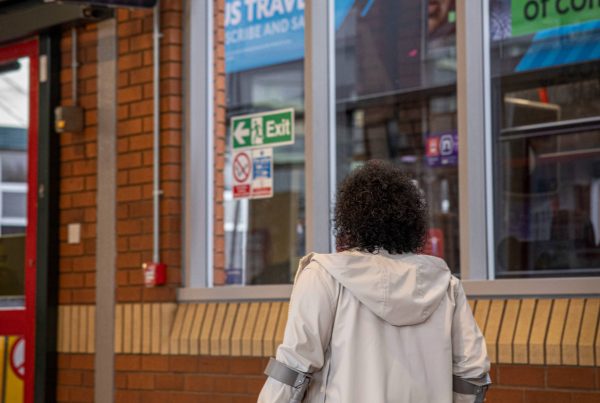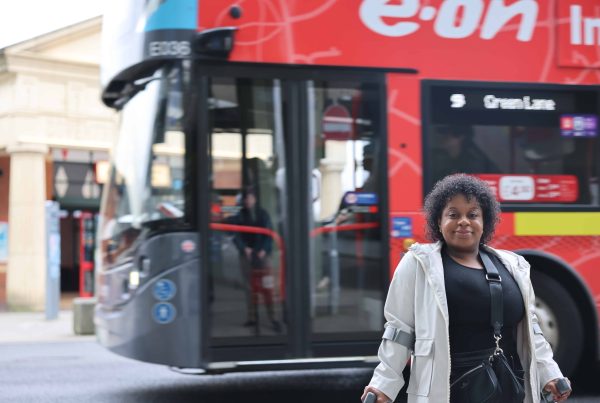
ncat is governed by a board of trustees, whose role is to provide strategic oversight and direction for its work in the areas of finance, research, and monitoring and evaluation.
The governance board has twelve board members, six of whom are independent external experts in transport accessibility, each bringing a lived experience of disability. The six consortium partners are each also represented on the board, and the board is led by an independent chair.
Here, we asked independent board member, Damian Joseph Bridgeman to tell us a little bit about himself and why he wanted to get involved with ncat.
Hello Damian, can you start by telling us a bit about yourself?
Hello, I’m Damian and I live in the Vale of Glamorgan in Wales, where I run two businesses. The first is a holiday company that provides accessible coaches to disabled people to be able to go on holidays such as skiing. And the second is my own consultancy working with government, private and not for profit sector organisations, to help them to go through innovation and change management – usually with a disability lens.
I am also a powered wheelchair user and a member of ncat’s governing board.
Why were you motivated to apply for the role of board member of ncat?
To start with, two separate colleagues sent the job ad to me and said I should apply! When I looked into it, and started researching about ncat, I fell into a rabbit hole and couldn’t get out!
I saw that I could use my skills to make a difference, making sure that disabled people, and those with complex health conditions, could have a voice around policy development. I really liked that ncat would be collecting evidence, in the form of the research with disabled people, to inform that policy development.
In truth, I want to get as many marginalised voices feeding into policy and research development as possible. It’s important because we’re trying to make society the most inclusive it can be, and sometimes it’s the quietest voices that might have the spark needed to change the transport landscape. It’s not necessarily the people that have the visibility already but those sitting around the kitchen table saying ‘I want to go somewhere but I’m struggling to get on a train’. They are the people who need their voice heard, and that is what we are trying to do through ncat and its Community of Accessible Transport (CAT) panel.
Why do you think the work of ncat is so important?
Being able to travel to where you want to go is essential for wellbeing. It enables you to get out into the community, to get to work, to see friends and family. It minimises isolation and maximises opportunity. Unfortunately, we are still in a position that many disabled people are stopped from being able to travel because the transport isn’t accessible to them. That needs to change, and that’s where ncat comes in.
What would you say to disabled people who are yet to join the CAT panel?
We need to hear your voices, so we can improve transport services and solutions for the majority in society. It’s okay saying around the kitchen table that you want something done, but we need to hear you – you might be that voice that changes the overall narrative. To guarantee your voice being heard, join our CAT panel and you will be contacted when research opportunities come up. There is no obligation to take part once registered, but you may find that it’s a rewarding experience to see change happen on a practical level because of something you have been a part of.
What is your biggest wish for ncat?
I would love for ncat to spark change on a global level. For it to become the gold standard that the rest of the world refers to in transforming their transport systems.
On a UK level, I’d like to see our transport system become fully inclusive, with disabled people involved in transport delivery at all levels, in paid roles, in boardrooms, in design, and in policy development.
Thank you Damian.
Disabled people are invited to share their experiences by taking part in research as a member of ncat’s Community of Accessible Transport (CAT). Here, you can share your views on what transport is like as a disabled or older person and tell us what improvements or changes would make things better. Your experiences will directly inform our recommendations. Every now and then we will also send out invitations for you to take part in Expert by Experience groups, where panel members can work with us on the design of different projects.
Once registered on the panel you are under no obligation to take part as you can choose which research you want to be involved in.


